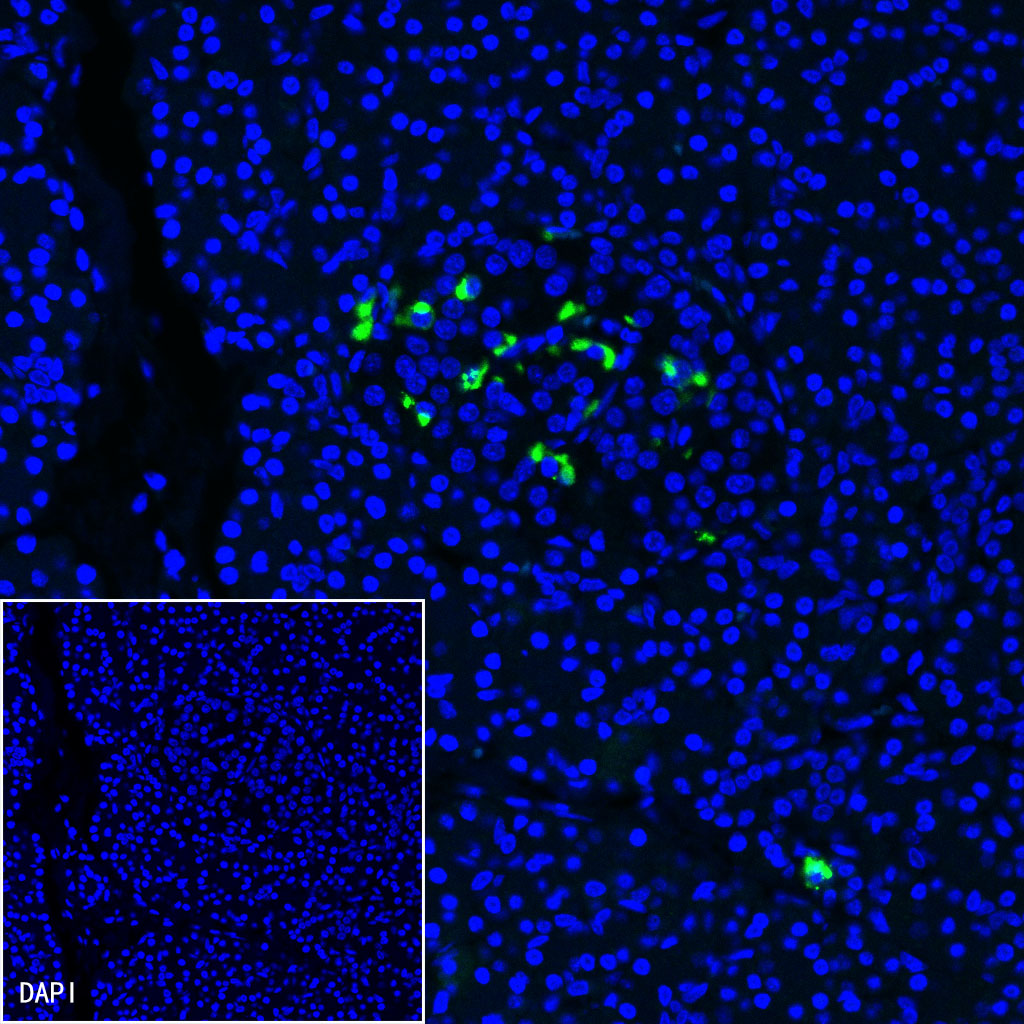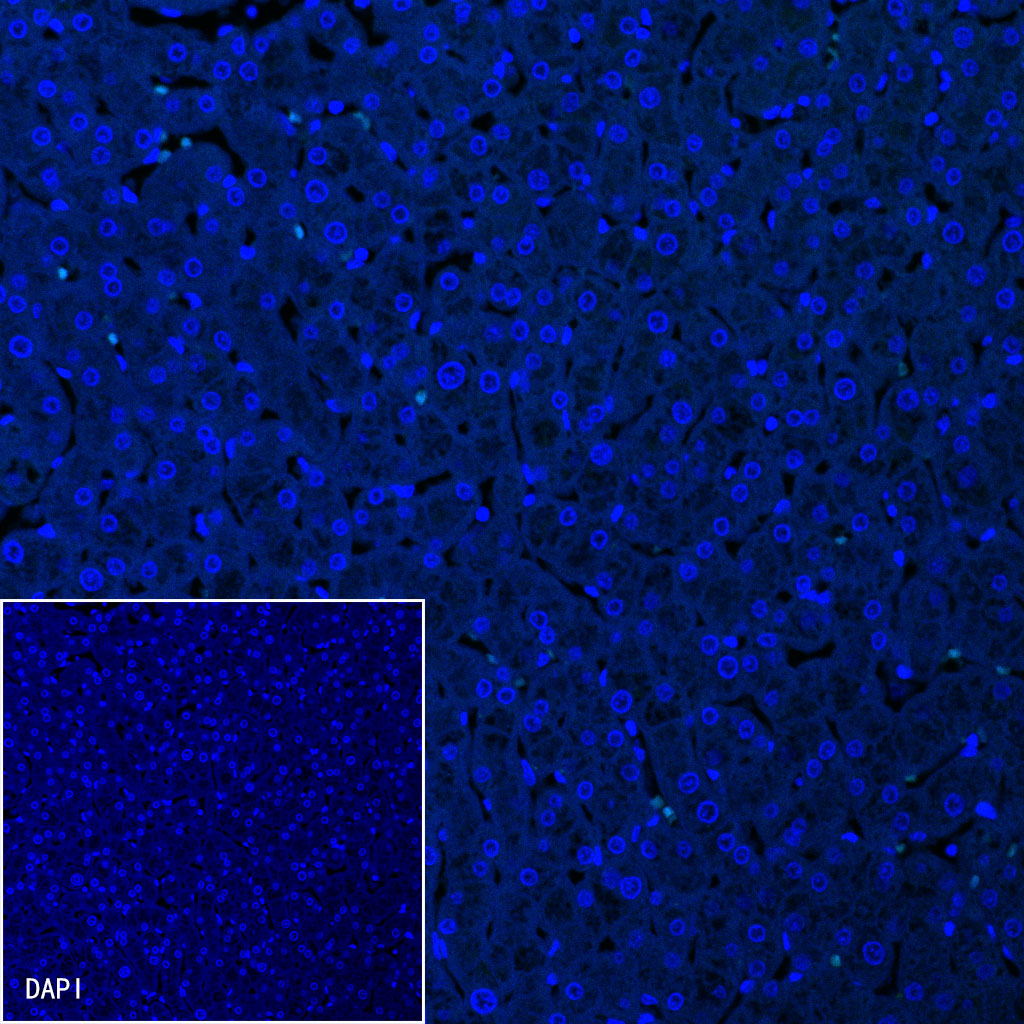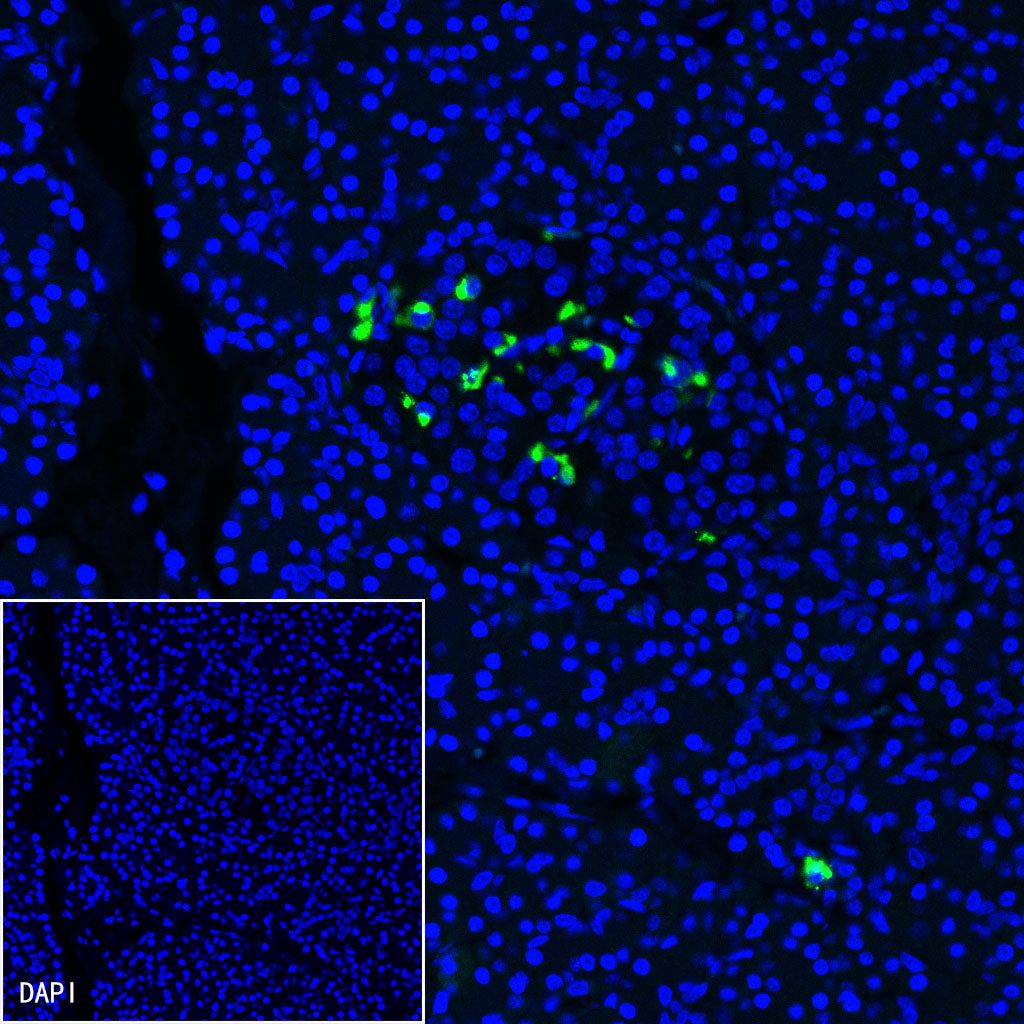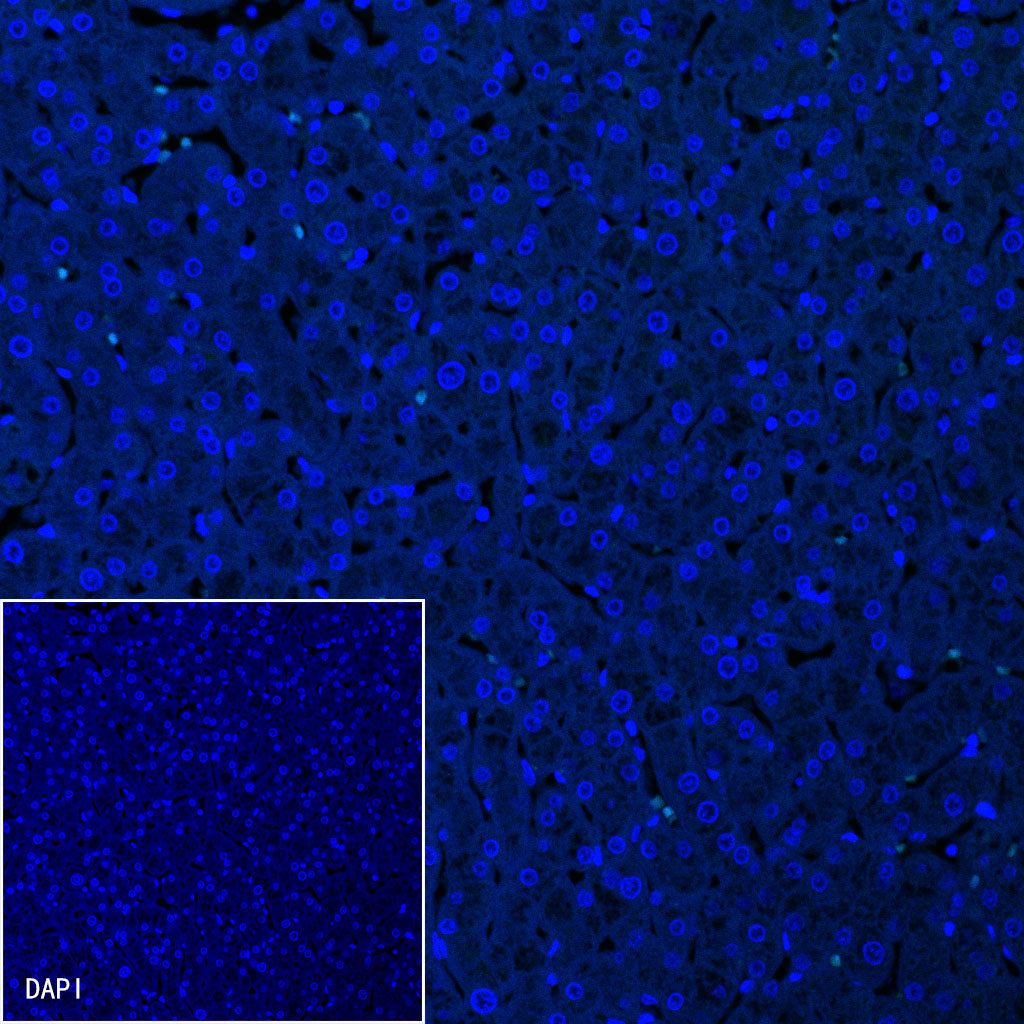IHC shows positive staining in paraffin-embedded human pancreas. Anti- Somatostatin antibody was used at 1/250 dilution, followed by a HRP Polymer for Mouse & Rabbit IgG (ready to use). Counterstained with hematoxylin. Heat mediated antigen retrieval with Tris/EDTA buffer pH9.0 was performed before commencing with IHC staining protocol.
Product Details
Product Details
Product Specification
| Host | Rabbit |
| Antigen | Somatostatin |
| Synonyms | Growth hormone release-inhibiting factor, SST |
| Immunogen | Synthetic Peptide |
| Location | Secreted |
| Accession | P61278 |
| Clone Number | S-1103-79 |
| Antibody Type | Recombinant mAb |
| Isotype | IgG |
| Application | IHC-P, IF |
| Reactivity | Hu |
| Purification | Protein A |
| Concentration | 0.5 mg/ml |
| Conjugation | Unconjugated |
| Physical Appearance | Liquid |
| Storage Buffer | PBS, 40% Glycerol, 0.05% BSA, 0.03% Proclin 300 |
| Stability & Storage | 12 months from date of receipt / reconstitution, -20 °C as supplied |
Dilution
| application | dilution | species |
| IHC-P | 1:250 | null |
| IF | 1:250 | null |
Background
Somatostatin, also known as growth hormone-inhibiting hormone (GHIH) or by several other names, is a peptide hormone that regulates the endocrine system and affects neurotransmission and cell proliferation via interaction with G protein-coupled somatostatin receptors and inhibition of the release of numerous secondary hormones. It inhibits insulin and glucagon secretion. Somatostatin is secreted by delta cells at several locations in the digestive system, namely the pyloric antrum, the duodenum and the pancreatic islets. Somatostatin released in the pyloric antrum travels via the portal venous system to the heart, then enters the systemic circulation to reach the locations where it will exert its inhibitory effects. In addition, somatostatin release from delta cells can act in a paracrine manner. In the stomach, somatostatin acts directly on the acid-producing parietal cells via a G-protein coupled receptor (which inhibits adenylate cyclase, thus effectively antagonising the stimulatory effect of histamine) to reduce acid secretion. Somatostatin can also indirectly decrease stomach acid production by preventing the release of other hormones, including gastrin and histamine which effectively slows down the digestive process.
Picture
Picture
Immunohistochemistry
Negative control: IHC shows negative staining in paraffin-embedded human kidney. Anti- Somatostatin antibody was used at 1/250 dilution, followed by a HRP Polymer for Mouse & Rabbit IgG (ready to use). Counterstained with hematoxylin. Heat mediated antigen retrieval with Tris/EDTA buffer pH9.0 was performed before commencing with IHC staining protocol.
Immunofluorescence

IF shows positive staining in paraffin-embedded human pancreas. Anti-Somatostatin antibody was used at 1/250 dilution (Green) and incubated overnight at 4°C. Goat polyclonal Antibody to Rabbit IgG - H&L (Alexa Fluor® 488) was used as secondary antibody at 1/1000 dilution. Counterstained with DAPI (Blue). Heat mediated antigen retrieval with EDTA buffer pH9.0 was performed before commencing with IF staining protocol.

Negative control: IF shows negative staining in paraffin-embedded human liver. Anti-Somatostatin antibody was used at 1/250 dilution (Green) and incubated overnight at 4°C. Goat polyclonal Antibody to Rabbit IgG - H&L (Alexa Fluor® 488) was used as secondary antibody at 1/1000 dilution. Counterstained with DAPI (Blue). Heat mediated antigen retrieval with EDTA buffer pH9.0 was performed before commencing with IF staining protocol.




